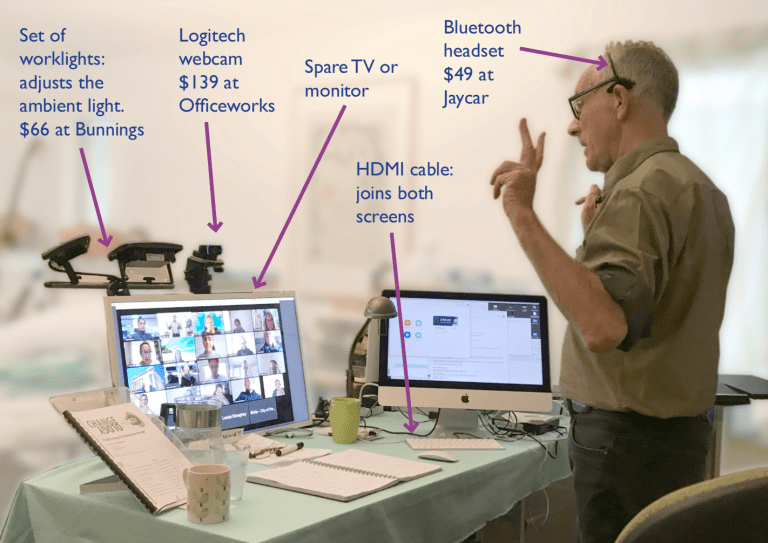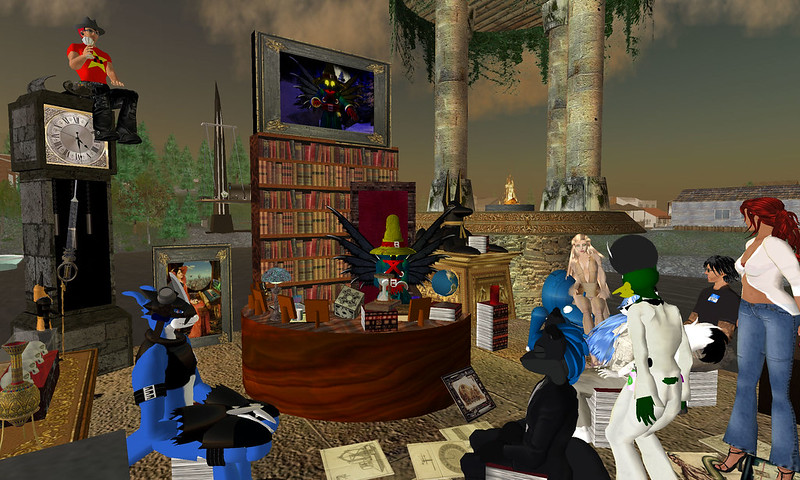Online Workshops: Expert Tips & Six Formats
5 minute read
This post provides some resources for the craft of designing and hosting online workshops. Workshops enable you to collaborate and engage with communities for research or participatory planning purposes. In a previous post, I blogged about a wide range of digital adaptions and tools relevant to the field of spatial planning. This post focuses on online workshops, and briefly discusses five workshop formats that could be adapted online.
How To: Online Workshops
Les Robinson is a community engagement expert based south of Sydney, Australia. His consultancy's motto is: "The practice of making change for good". His principal advice for effective workshops, whether online or in-person/physical, is to make them fun: fun for participants, which will also make them fun for the facilitator (i.e.: you!). When it comes to the perfect online workshop, Les advocates good preparation, and plenty of it. It took him 3 days to get his working space in top gear, and two mock workshops with real volunteer participants to sweep all those technical details that would otherwise ruin your real workshop. While he used Zoom, the following lessons apply to all platforms:
- Do two (2) full dress rehearsals.
- Have a co-host;
- Start slow, do energy checks and have lots of breaks.
- Use the breakout room feature;
- Get a bluetooth headset;
- Have a big screen (a TV is perfect)
- Make a nice background and adjust the lighting.

Getting your full set-up right for an online workshop can take up to three days. A large screen will help you see all participants. Picture credit: Les Robinson on the Changeology blog (31 March 2020).
You will need to prepare. This includes sending out preliminary material to participants in advance, printing out a list of participants, and doing a sound check. Delivery-wise, the ground rules for participation should be crystal clear from the outset, as will be the agenda for the workshop. Schedule in some breaks. Be lively and 'theatrical' as facilitator to foster a friendly climate, this will support discussion and interaction among the participants.
Finally, Les Robinson's website also provides lots of resources to help you learn the trade of community engagement, such as a blog, goodies for practitioners, and the book Changeology for purchase which serves as a crash course for the field. Whether you are a researcher, industry professional or a spatial planning aficionado / activist / community group member, you too can practice making change for good!
Six Workshop Formats
There is no a priori format for online workshops. Workshops are typically delivered in-person (i.e. face-to-face in physical venues). Much of the advice for effective physical workshops will hold true for online delivery, from workshop design to the art and science of moderation and facilitation.
I briefly present six methods: 1) Planning for Real®, 2) Focus groups, 3) Conversation cafés, 4) Future workshops, 5) Democs, and 6) Second Life. The first five are traditional physical workshop methods. The sixth is a digital platform that could host any of these, among others. See the crowdsourced database Participedia for more workshop methods.
Planning for Real® is UK version of the American charrette (i.e. participatory design workshop). The participatory design method rests on making a physical 3D model of the area being planned, followed by a prioritisation and ranking of ideas and needs generated by participants. A landmark precursor of online participatory planning platforms was the web-based Public Participation GIS platform developed by Richard Kingston and colleagues. An online facilitated Planning for Real® session will likely require ingenuity and the use of a complementary collaborative design platform (ideally free and Open Source, for greater accessibility). Tools such as Mural or Wireframe can help wireframe conceptual designs, but lack a spatial component. A former post reviews useful participatory mapping tools.
Focus Groups are a staple research, participatory design and policy evaluation method in many fields and disciplines. Focus groups involve interaction among a small group of participants about issues that matter both to them. Participants can be any specific group, from experts to people living in a certain area. The more homogeneous the group, the more participants will have in common with each other, and the easier the group will be to moderate for the researchers. Sociology Professor David Morgan (Portland State University) gives the full low-down on how to design, prepare and conduct focus groups in the essential book Planning Focus Groups and in presentation on Youtube. See also the crisp overview of the value of focus groups by B2B International, with a focus on market research.
Conversation Cafés consist of "openly hosted conversations designed to engage participants in stimulating dialogue on relevant societal issues, thereby allowing them to express and develop informed opinions in a mutually respectful way." For people living in northern latitudes, cultural and political cafés might not be ingrained in local culture as in other parts of the world. The point here is not small talk of typical café conversations, but discussion about issues that matter, conducted in a "Socratic" mode of respectful dialogue and mutual learning. Fruitful conversations can last 60-90 minutes, or as appropriate. Don't forget the virtual coffee and biscotti.
Future Workshops are essentially visioning workshops that enable to elicit desirable futures. Think urban utopias! The method comprises three steps: 1) critique, 2) fantasise/envision, and 3) implement. They can also share features with scenario workshops. Future workshops could also feature elements of 'backcasting'. Once participants have agreed on desirable futures (e.g. different development scenarios), the idea is to proceed with the end in mind. This entails detailing milestones and progress indicators. Backcasting can operationalise and perform a reality check (i.e. feasibility assessment) on desirable futures. Backcasting could even help in creating precise roadmaps for 'utopian' visions, or, in other words, (re-)create the present in the image of the desired future. Even if visions are unrealistic, the formulation of desirable futures helps raise awareness about key societal issues and stimulates dialogue about alternatives to the status quo.
Democs, also called PlayDecide, is a deliberation method based on a card game where about 6-8 participants can learn about and discuss complex scientific, political and ethical issues. This makes the method a good candidate for spatial planning, as the field naturally lends itself to complexity. The method comprises two simple steps: participants begin by selecting a range of issues, which they then discuss, and report back to the organisation sponsoring the participatory workshop. No need for technical experts: the cards provide food for thought, learning and discussion among the participants.The cards can be downloaded for free, covering diverse themes from climate change and energy to social inclusion and culture. Democs can also be used for teaching purposes.
Second Life is a virtual gamification platform where participants interact as avatars. It lends itself to multi-user discussions and deliberation. The virtual environment could enable any of the five workshop formats discussed here. Why not also roundtables or thematic exhibitions? You can easily upload pictures or 3D models to display in the digital venues custom-made by you. The potential of Second Life for participatory spatial planning has long been recognised in research (e.g. The Second Life of Urban Planning (2009) by Marcus Foth and colleagues).
Finally, you can augment any of the above workshop formats with a host of simple facilitation exercises, ranging from conversation starters and ideation methods to prioritisation and decision-making. The engagement start-up SessionLab provides an impressive library of 750 facilitation techniques!

Host your workshop in Second Life to make it fun in times of lockdown recovery. Picture credit: Second Life Office Hours, by John Lester on Flickr. Attribution Creative Commons.
Share your favourite online facilitation and collaboration methods with:
When you subscribe to the blog, we will send you an e-mail when there are new updates on the site so you wouldn't miss them.


Comments 2
[…] Online workshops: Expert tips & six formats – how to facilitate online workshops – by Ian Babelon […]
[…] set up online workshops, the Young Academics of the Association of the European Schools of Planning […]